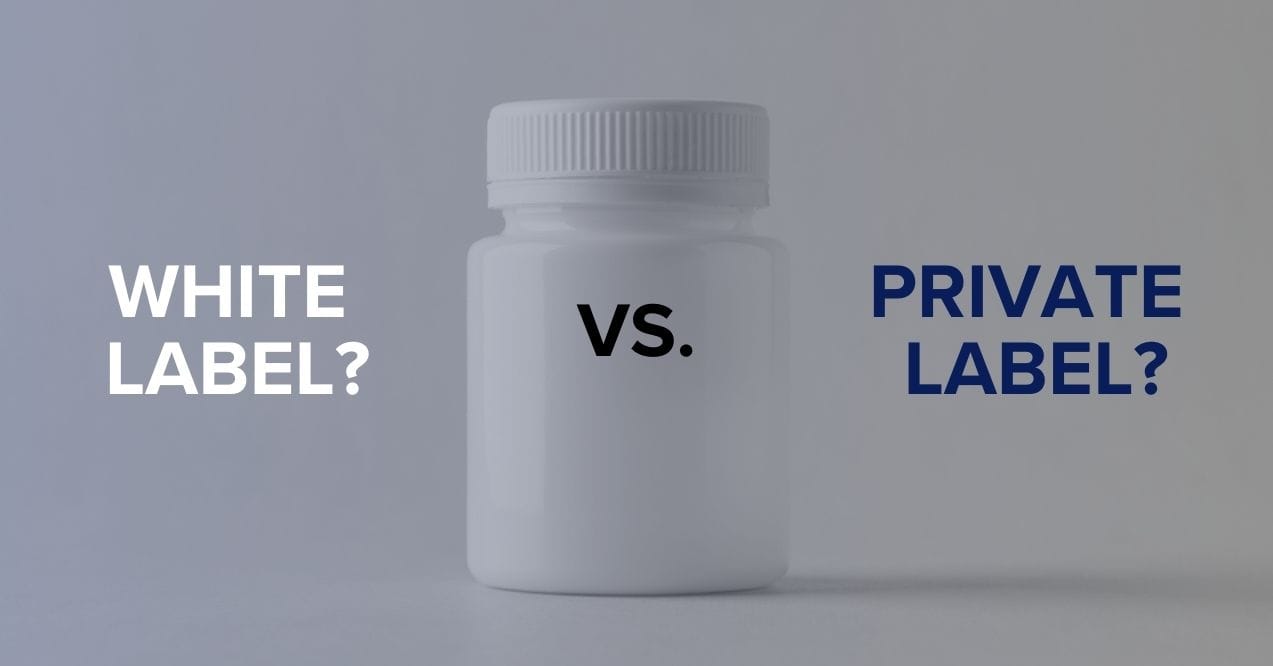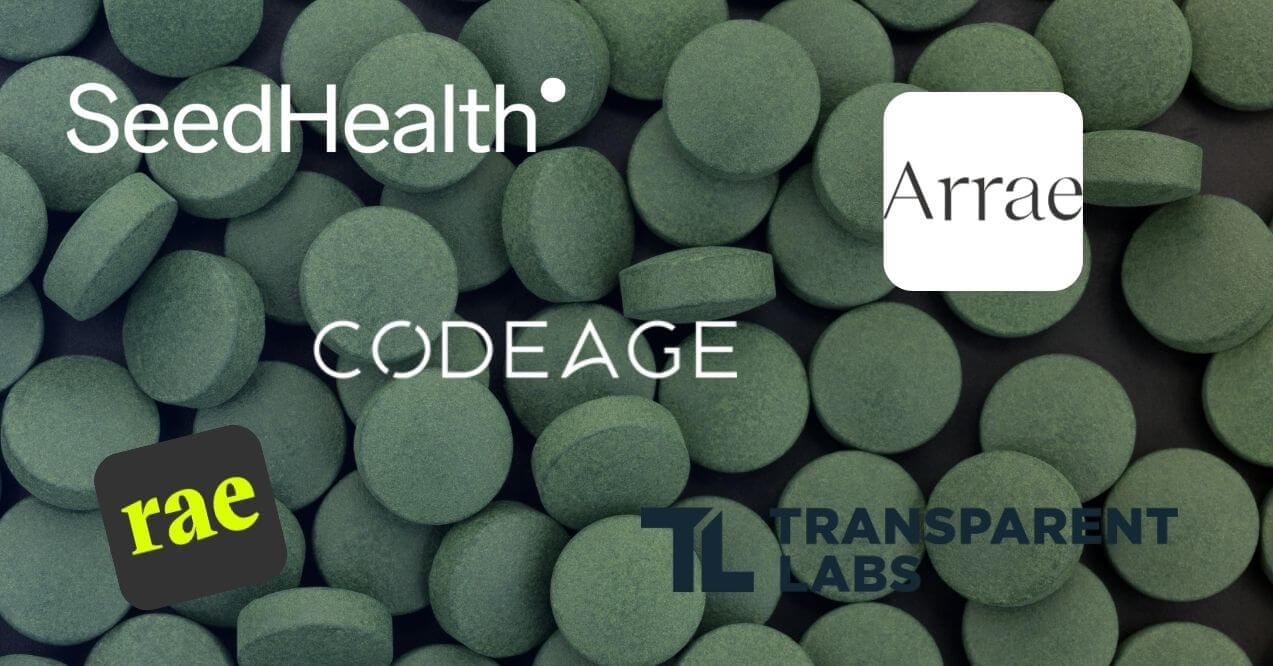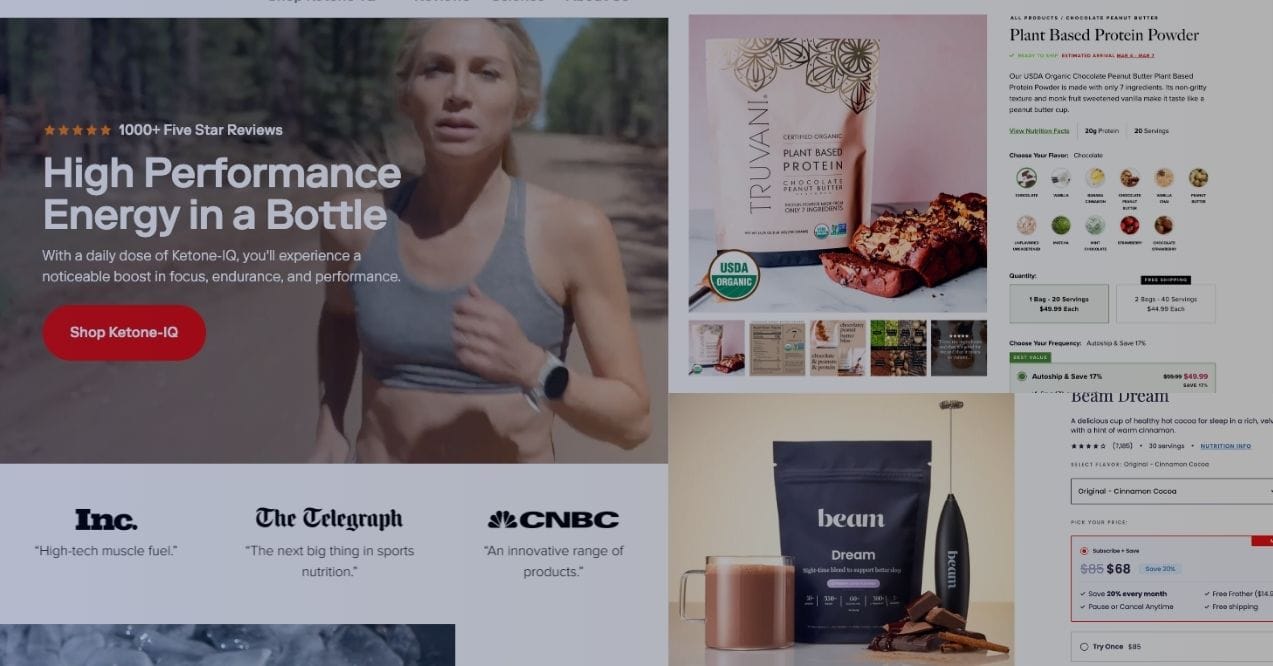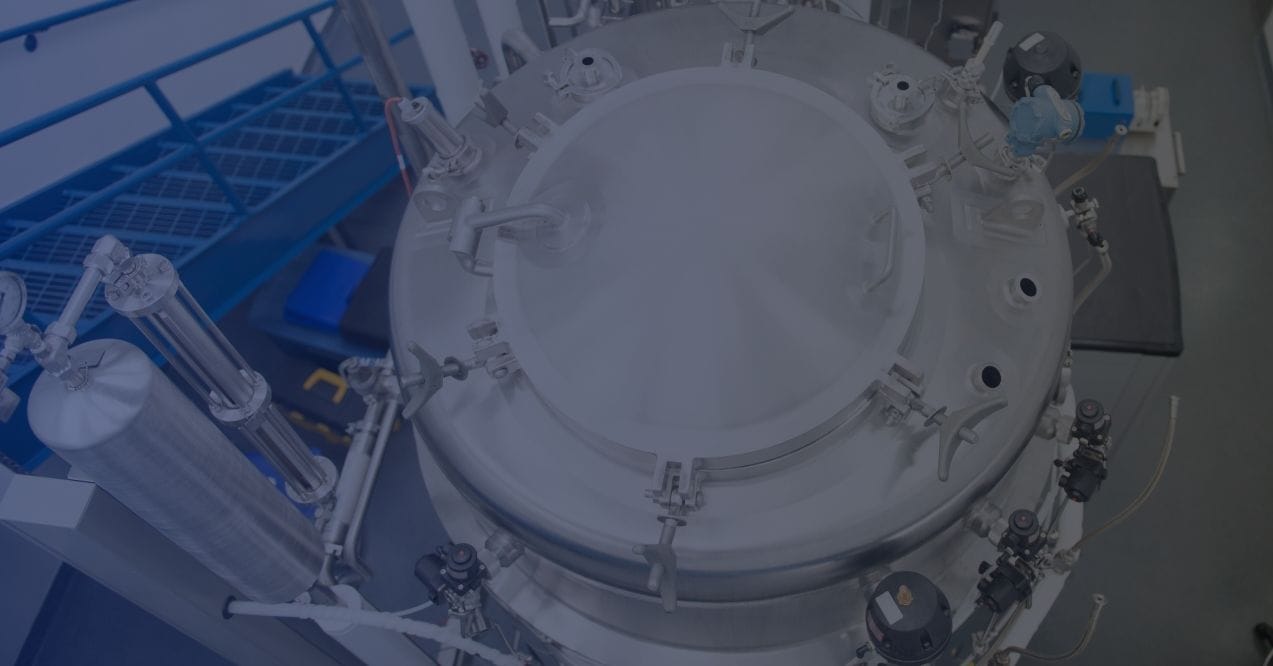White label vs private label products: which is better?


When launching a product in today’s competitive market, one of the critical decisions you’ll face is choosing between white label and private label manufacturing. Knowing the white label vs private label distinction will significantly impact your business success.
In 2024, the landscape of product manufacturing has evolved significantly. Private label products now account for 24% of unit volume across major retail sectors, while white label solutions continue to dominate certain industries like supplements and cosmetics.
The fundamental difference between white label and private label lies in product exclusivity and control. White label products are manufactured in bulk and sold to multiple retailers who add their own branding, while private label products are manufactured exclusively for a single retailer with custom specifications.
In this comprehensive guide, you’ll learn how to evaluate both options based on your business needs, discover key cost considerations, understand market positioning strategies, and identify potential pitfalls to avoid. By the end, you’ll have the insights needed to make an informed decision between white label and private label manufacturing for your business.
What is white labeling?
White labeling refers to purchasing generic products from a manufacturer who allows you to sell these products under your brand name. The white label meaning in business terms is straightforward: you’re buying pre-made products and adding your branding elements. Here’s how white labeling works in practice:
- A manufacturer produces a standard product in bulk
- Multiple businesses can purchase the same product
- Each business adds its own branding and packaging
- The final product reaches consumers under different brand names
For example, in the supplement industry, a manufacturer might produce a standard vitamin C formula. Multiple brands can purchase this formula, package it with their branding, and sell it to their customers. The base product remains identical, but the packaging and marketing differ.
Popular white label product categories include:
- Dietary supplements and vitamins
- Skincare and cosmetics
- Food and beverages
- Generic electronics
- Clothing and accessories
The timeline from order to market is typically shorter with white labeling vs private labeling since the products are already developed and tested. Most white label manufacturers can fulfill orders within 4-8 weeks, depending on quantity and complexity.
What is private labelling?
Private labeling represents a more customized approach to product manufacturing. What is a private label exactly? It’s a manufacturing arrangement where products are made exclusively for your brand according to your specifications. In a private label arrangement:
- You control product formulation and specifications
- The manufacturer produces exclusively for your brand
- You own the product rights and formulation
- No other brand can sell the exact same product
Private label manufacturing offers significant advantages in terms of product differentiation. You can:
- Customize ingredients or components
- Control quality standards
- Modify packaging specifications
- Set unique product features
- Create proprietary formulations
Major retailers like Amazon (AmazonBasics), Costco (Kirkland), and Walmart (Great Value) have built successful businesses through private labeling. The key to their success lies in maintaining consistent quality while offering competitive prices.
White label vs private label costs
The financial implications of choosing between white label and private label options significantly impact your business model. Let’s break down the cost structures:
| Feature | White label | Private label |
| Initial investment | Lower | Higher |
| Minimum order quantities (MOQs) | Standard | Custom, based on specifications |
| Unit costs | Predictable | Variable, based on customization |
| Price negotiation | Limited | Room for negotiation |
| Profit margins | Lower | Higher potential |
| Market entry timeline | Quick | Longer development timeline |
| Break-even point | Sooner | Later |
| Long-term profitability | Lower (generally) | Higher (generally, once established) |
The break-even point typically comes sooner with white label products due to lower initial costs, but private label products often deliver better long-term profitability once established.
White label vs private label market positioning
Your choice between private label vs white label manufacturing directly affects your market position:
| Feature | White label | Private label |
| Market entry speed | Faster | Slower |
| Competition | Higher (at similar price points) | Lower (less direct competition) |
| Product differentiation | Limited | Strong |
| Pricing control | Less | More |
| Target market | Price-sensitive | Quality-focused |
| Barriers to entry | Lower | Higher |
| Brand control (product) | Less | More |
| Primary focus | Branding and marketing | Product differentiation |
In white labeling vs private labeling, brand control becomes a critical factor. Private label gives you more control over your brand identity through product differentiation, while white label success depends heavily on marketing and distribution strategies.
Decision framework of white label vs private label
Choosing between white label and private label manufacturing isn’t a one-size-fits-all decision. Your choice should align with your business model, resources, and long-term goals. Let’s break down the key factors to consider when making this crucial decision for your business’s future.
Business stage analysis
Your current business stage plays a crucial role in choosing between white label and private label manufacturing. Startups often benefit from white label’s lower risk profile and faster market entry capabilities. This approach allows new businesses to test market demand and build revenue streams without substantial upfront investment.
Established businesses typically find more value in private label manufacturing. With a proven market presence and understanding of customer needs, these companies can leverage private label’s differentiation possibilities to strengthen their market position and build unique product lines.
Growing brands might consider a hybrid approach, using white label products to maintain steady revenue while gradually developing private label offerings. This strategy allows for controlled expansion without overextending resources.
Budget and investment considerations
Financial resources significantly impact your manufacturing choice. With limited capital, white label manufacturing offers a practical entry point. Lower minimum order quantities and reduced development costs make it possible to launch products with minimal initial investment.
Companies with substantial investment capacity should seriously consider private label manufacturing. The higher upfront costs of product development and customization can lead to stronger market positioning and better long-term profitability.
For businesses with mixed budgets, a phased approach often works best. Start with white label products to generate revenue and market presence, then gradually transition to private label offerings as capital becomes available.
Market analysis and positioning
Market conditions heavily influence your manufacturing strategy. In highly competitive markets, private label manufacturing provides crucial product differentiation opportunities. Unique formulations and exclusive features help your brand stand out from competitors.
Price-sensitive markets often favor white label products. Lower manufacturing costs allow for competitive pricing while maintaining acceptable margins. This approach works particularly well in markets where price is a primary purchase driver.
Quality-focused markets typically respond better to private label products. The ability to control product specifications and maintain consistent quality standards helps build strong brand reputation and customer loyalty.
Common pitfalls to avoid
Both white label and private label manufacturing come with potential challenges that can impact your business success. Here are the key areas where companies often encounter problems:
Contract terms and legal protection
Contract negotiations are critical for protecting your business interests. Many companies rush through this phase, leading to costly mistakes. Pay particular attention to:
- Exclusivity clauses that define your rights to sell in specific markets or regions
- Quality control specifications and acceptance criteria
- Intellectual property protection, especially for private label formulations
- Pricing terms, including volume discounts and cost escalation conditions
A well-structured contract serves as your roadmap for the manufacturing relationship. Take time to review all terms with legal counsel who understands your industry.
Quality management and control
Quality issues can severely damage your brand reputation. Successful manufacturers implement robust quality management systems that address:
- Product consistency across multiple production runs
- Regular supplier audits and performance reviews
- Comprehensive testing protocols at key production stages
- Clear quality control documentation and reporting
Don’t rely solely on your manufacturer’s quality systems. Develop your own quality control checkpoints and maintain regular communication with your manufacturing partner. This oversight becomes especially important as production volumes increase.
Conclusion
The choice between white label and private label manufacturing represents a crucial strategic decision for your business’s future. Success in either path begins with a thorough assessment of your current resources and capabilities, coupled with a deep understanding of your target market’s requirements. As you evaluate these options, consider not just the immediate investment needs but also your long-term growth aspirations and desired brand position in the market.
White labeling offers a rapid path to market with lower initial investment, making it an attractive option for businesses focused on quick market entry and validation. Private labeling, while requiring more upfront investment and time, provides greater control and differentiation potential, potentially leading to stronger brand equity and higher profit margins over time.
Yes, many businesses start with white label products and transition to private label as they grow. This approach allows you to build market presence and generate revenue while developing expertise and capital for private label development. Just ensure your supplier contracts maintain this flexibility.
White label products typically launch in 4-8 weeks since they’re pre-made and only need rebranding. Private label products usually require 3-6 months for development, testing, and initial production, depending on product complexity and customization requirements.
Private label products typically offer higher profit margins due to product exclusivity and greater pricing control. White label products often have lower margins due to market competition, but they require less initial investment and carry lower risk.
References:
Foy, S. (2024). Private Label Trends. Numerator. https://www.numerator.com/private-label-trends/
COMMONLY ASKED QUESTIONS
Advertisement. This site offers health, wellness, fitness and nutritional information and is designed for educational purposes only. You should not rely on this information as a substitute for, nor does it replace, professional medical advice, diagnosis, or treatment. If you have any concerns or questions about your health, you should always consult with a physician or other health-care professional. Do not disregard, avoid or delay obtaining medical or health related advice from your health-care professional because of something you may have read on this site. The use of any information provided on this site is solely at your own risk.

















